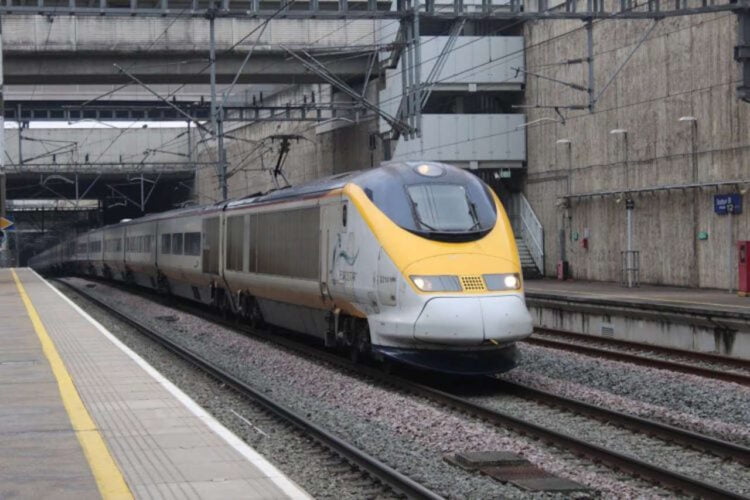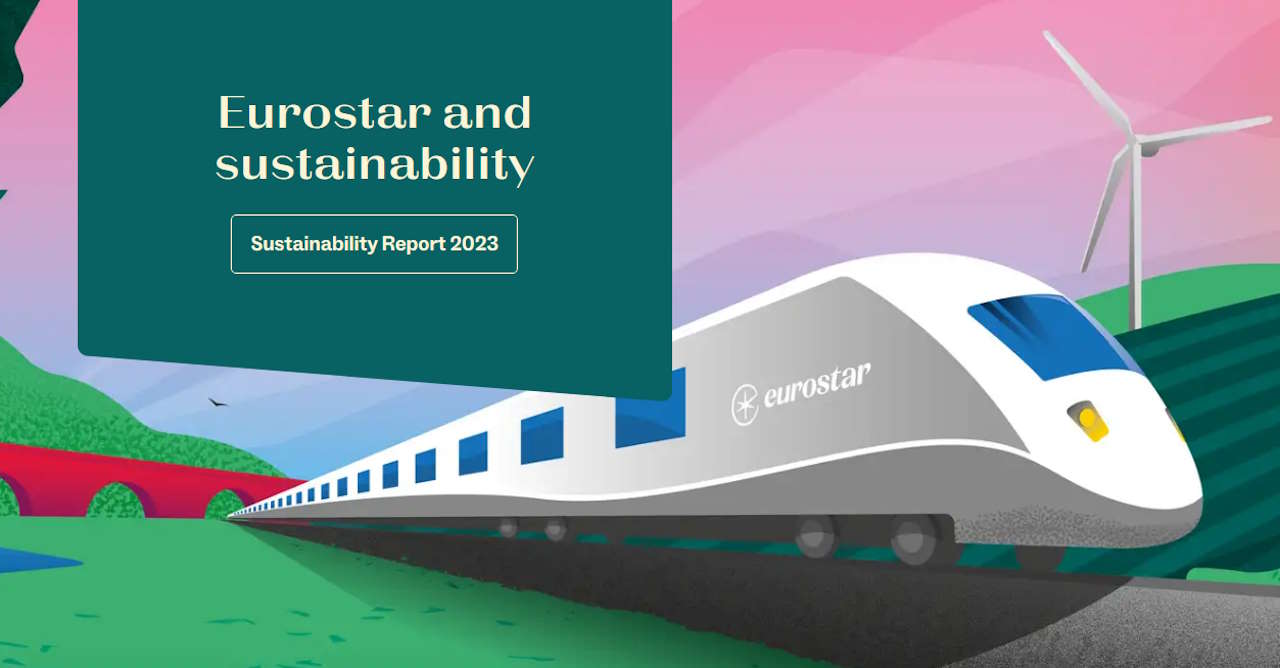Eurostar has published its first sustainability report in which it makes a commitment for its trains to be powered from 100% renewable energy sources by 2030.
The sustainability strategy focuses on three main areas:
- Reducing its impact.
- Integrating circularity
- Developing “open hubs”

Reducing its impact on carbon emissions
This will be through providing power for traction needs from renewable sources and using energy more efficiently.
In February 2024, Eurostar signed a Memorandum of Understanding with Infrabel to investigate the use of solar energy to power its trains.
Integrating circularity
This is a general term for the entire energy chain, from production to end-of-life.
The amount of waste will be minimised and resources used more efficiently, such as ensuring all on-board supplies come from sustainable sources and are environmentally friendly.
Eurostar has been recognised for its efforts in these areas with its on-board catering that has received a three-star rating from the Food Made Good Awards.

Developing “open hubs”
These are designed to attract more passengers to Eurostar’s low-carbon service for onward transfer to domestic networks or long-haul flights. One such example is Eurostar’s air-rail partnership with KLM.
Sustainability is clearly in the mind of travellers to the skies slopes, as last winter over 4,000 tickets were sold in their first week of sale, whilst 415,00 tickets have already been sold for travel by Eurostar to Paris for the 2024 Olympics.
The Eurostar Sustainability Report can be found by clicking here.
Eurostar trains have been running on 100% wind power in the Netherlands, since 2017, and last year achieved 40% from wind power in the UK.
This is a deliberately ambitious target, Eurostar wants to use its brand and commitment to accelerate change across the sector.
To achieve our goal, we work closely together with our partners in each of our markets, we encourage regulatory support for the rapid deployment of new renewable energy projects.
Gwendoline Cazenave, Eurostar CEO

To facilitate this work, Eurostar recently joined the RE100 alliance with companies committed to sourcing 100% of their energy from renewable sources.
We’re proud to be the first rail company to join. Today, the transport sector accounts for 25% of European greenhouse gas emissions, making sustainable high-speed rail a key solution to a quarter of Europe s climate problem .
Gwendoline Cazenave, Eurostar CEO
We’re delighted to welcome Eurostar to RE100, the first rail firm to join. Eurostar is setting a global example and leading the way on renewables powering our rail networks. Eurostar now has the opportunity to draw on a global network of over 400 companies as it works towards 30 million journeys a year powered by 100% renewable electricity by 2030.
We encourage other businesses in the rail sector to follow Eurostar s lead and commit to 100% renewable electricity.
Ollie Wilson, Head of RE100, Climate Group
Eurostar takes responsibility for reducing its own emissions and environmental footprint to ensure that every one of its passengers is transported at the lowest possible environmental cost.
We’re building the backbone of sustainable travel in Europe, with a target of 30 million passengers by 2030, at the same time we’re also committed to building the mode of international transport that has the least negative impact on the planet, reducing emissions even as we grow.”
Gwendoline Cazenave, Eurostar CEO






Responses